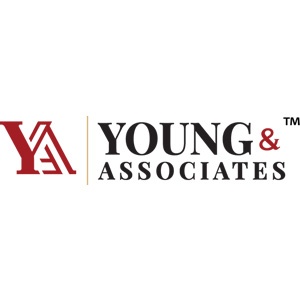Young & Associates provides banks and thrifts with support for their compliance programs, independent reviews, and in-bank training, as well as a full menu of management consulting, loan review, IT consulting and policy systems.
BSA. Q: Are we required to verify the identity of the beneficial owners that are listed on the beneficial ownership certification document? There are times when the beneficial owners are not on our account, so our account-opening staff are not getting identifiable information on the owners listed.
A: Yes, the BSA regulation requires a covered financial institution to verify the identity of each beneficial owner identified to it, according to its risk-based procedures, to the extent reasonable and practicable. As the BSA examination procedures note, requiring legal entity customers seeking access to banks to disclose identifying information (e.g., name, date of birth and Social Security number) of natural persons who own or control them will make such entities more transparent, and thus less attractive to criminals and those who assist them.
TILA. Q: If I am reading Regulation Z correctly, rescission applies to all home equity lines of credit (HELOC). So, even if we refinance one HELOC with another HELOC and do not advance any new money or increase the line amount, rescission still applies. Is that correct?
A: Yes, for a bank as lender, the only exemption from rescission for a HELOC is if the transaction is a “residential mortgage transaction” (used to purchase the dwelling). Other exemptions from the closed-end side of Regulation Z do not exist for open-end credit, including the closed-end exemption for a refinancing by the same lender (with no new funds advanced).
EFTA. Q: We have a customer who is disputing multiple in-app purchases for the same app. She is disputing only some of the purchases for this app but not all. Because of the way the dates of the purchases fell, we had to open multiple cases in our dispute system to get them all covered.
Google has since replied with compelling evidence for two of the six disputes filed. We are still waiting for communication regarding the other transactions. Since they are all the same transactions for the same app and account, is the evidence we have so far received from Google enough to revoke all of our provisional credits?
A: No, it would probably be best to keep the other provisional credits in place until final word is received from Google for each transaction. It may seem reasonable to extend the result for the first two disputed transactions to the remaining four, but it certainly is possible that one or more of those transactions could prove to be fraudulent or otherwise be unauthorized.
Insider Credit. Q: A director’s commercial line of credit of more than $500,000 was due to mature on August 1. However, on July 28, the term was extended by two months.
Extending the term like this for a short period of time is a common practice within our commercial area. The extension was not approved by the board. Would this be considered a violation under Regulation O?
A: Yes, definitely. Regulation O requires preapproval by the board of directors for any extension of credit in an amount that, when aggregated with the amount of all other extensions of credit to that person and to all related interests of that person, exceeds the higher of $25,000 or 5% of the bank’s unimpaired capital and unimpaired surplus (up to $500,000). So, in all cases, extensions over $500.000 must receive prior approval from a majority of the board.
BSA. Q: I have never had this come up before. A customer brought in cash and had our teller count it. It amounted to $200,000. The customer deposited only $5,000 and took the rest of the cash with him because he did not want a Currency Transaction Report (CTR) filed.
I am filing a Suspicious Activity Report (SAR) for avoiding the CTR. However, does a CTR also have to be filed on the $200,000 in and the $195,000 taken out.
A: From your description of the situation, no CTR is required since the customer did not deposit, withdraw or exchange currency in excess of $10,000. He just had it counted by the teller and then deposited only $5,000 to evade a CTR. However, this is an unusual situation, and you should definitely watch this customer for future structuring attempts.
CRA. Q: Is there any kind of checklist of items to look for to see if something qualifies for Community Reinvestment Act (CRA) credit?
A: Determining if something “qualifies” for CRA credit really boils down to determining whether something can be classified as “community development.” There is no checklist readily available that I am aware of. There is quite a bit of subjectivity in this area, and the bank needs to look at the definitions of “community development,” “community development loan,” “community development service” and “qualified investment” in the CRA regulation to determine if the loan program it plans to offer or other product or activity it is planning will meet the standards to be considered as “community development.”
There is also some additional information in the Interagency Questions and Answers on CRA, as well as in the interagency CRA examination procedures. There are no real shortcuts.
Flood Insurance. Q: When is the effective date of a National Flood Insurance Program (NFIP) for a property that has a current mortgage on it and an effective flood policy? Is it 30 days or some shorter time period?
This policy ended up being canceled due to nonpayment (payment was received after the reinstatement date). The insurance agent has applied for a new flood insurance policy for the property. The declaration page we just received shows an effective date 30 days from the date of application. Would the fact there is a mortgage on the property and that mortgage is the reason behind the need for flood insurance be an exception to the NFIP standard 30-day waiting period?
A: No, that is not one of the allowed exceptions to the standard 30-day waiting period. The 30-day waiting period applies in the situation you described.
The only exceptions permitted to this waiting period are:
- If the flood insurance is purchased while making, increasing, extending or renewing a covered mortgage loan.
- If the Federal Emergency Management Agency (FEMA) revises a flood map such that a building is now identified as being in a Special Flood Hazard Area (SFHA) when it had previously been outside any SFHA. For the first 13 months after such a map revision, the waiting period is shortened to one day.
- If privately owned property experiences flooding after a wildfire, if a property is impacted by damage from flooding that originates on federal land, the federal land had been burned by a wildfire, and the policy is purchased no later than 60 days after the wildfire-containment date. Here again, the waiting period is shortened to one day.
HMDA. Q: We have a loan to purchase an adult foster care residential home that has five bedrooms (this is how the appraisal describes it). There are six residents who will live in the house with one common area. From what we understand, this is permanent housing for the residents.
For the HMDA field “Total Units,” do we report that as five units or one? Also, do we report it as “Multifamily?”
A: This property should be reported as one unit and not as a multifamily dwelling.
RESPA. Q: Is it accurate to state that mortgages taken on residential properties, such as the business owner’s primary or secondary home, that are loans for business, agricultural or commercial purposes are exempt from RESPA?
Also, are one- to four-family rental properties exempt from RESPA? The loan would be considered a business purpose for purchasing or refinancing for updating/repairs to the properties. I have been reading mixed information regarding the treatment of rental properties as covered by RESPA and being exempt.
A: Generally, the loan purpose determines exemption, not the collateral by itself. RESPA exempts loans that are primarily for business or commercial purposes and relies on the definitions and guidance in Regulation Z for making this determination.
Credit extended for some business or agricultural purpose (e.g., working/operating capital, acquiring some business/agricultural equipment or inventory, etc.) that is secured by a one- to four-family dwelling is exempt from RESPA.
Credit extended to acquire, improve or maintain rental property (regardless of the number of housing units) that is not owner-occupied is deemed to be for business purposes and would not be covered under RESPA.
If the owner occupies one unit (or will within the coming year), then coverage depends on the total number of units for credit extended to acquire, improve or maintain rental property. Such credit extended to acquire the rental property is deemed to be for business purposes if it contains more than two housing units. Credit extended to improve or maintain the rental property is deemed to be for business purposes if it contains more than four housing units.







